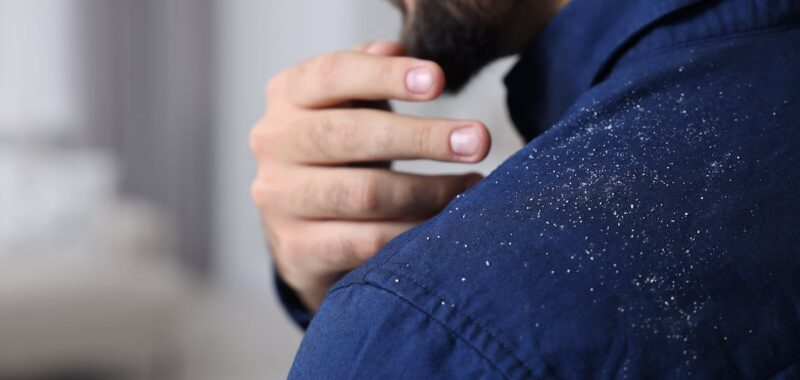
A recent study has found that reducing dandruff symptoms through anti-dandruff shampoo use can lead to improvements in emotional well-being and everyday functioning.
The study, published in the International Journal of Cosmetic Science and funded by Unilever U.K. Central Resources Limited, involved a four-week intervention comparing a group using anti-dandruff shampoo (ADS) with a control group using their regular shampoo.
Study overview
Researchers reported, “a clinically significant reduction of dandruff severity…led to improvements in self-reported scalp-related quality of life.”
This improvement was further linked to emotional benefits. According to the authors, “the reduction of physical dandruff symptoms through ADS use reduces negative scalp and hair-related emotions, leading to better daily functioning.” These functional improvements included changes in clothing choices, hair styling, and grooming behaviors.
The study also explored the indirect psychological effects of dandruff. Mediation analysis found “that improvements in scalp-related emotions mediated the relationship between dandruff symptom severity and daily functioning.”
The findings suggested that symptom relief not only alleviates discomfort but also supports behavioral and emotional shifts that improve quality of life.
Interestingly, self-esteem and self-confidence levels did not show a direct change. “We found no impact of improvement in dandruff symptomology on self-reported self-esteem or self-confidence,” the authors wrote.
They proposed that “self-worth may not be immediately influenced solely by the resolution of physical symptoms,” and longer-term interventions may be needed to evaluate these constructs fully.
The findings align with earlier work on chronic dermatological conditions such as eczema and seborrhoeic dermatitis. “These studies highlight the significance of emotions in the treatment and functional outcomes of individuals with dandruff.” They emphasized that emotional and social dimensions should be taken into account when developing anti-dandruff solutions,” the authors wrote.
Industry commentary: Implications for product development
CosmeticsDesign spoke to lead study author Dr. Alice Newton-Fenner, Consumer Science Manager at Unilever, who emphasized the broader impact of dandruff relief based on the study. “We found that using anti-dandruff shampoo for four weeks significantly reduced dandruff symptoms,” she said.
“This not only provided participants with physical symptom relief but also directly boosted their scalp and hair related emotional wellbeing,” she said, adding “it also indirectly improved overall daily functioning.”
The formulation tested contained piroctone olamine, and the data showed measurable efficacy. “The reduction in dandruff in the experimental condition was 16x greater than that seen in the control condition,” Dr. Newton-Fenner explained. Clinical assessments supported consumers’ own perceptions of improved scalp health, including “less itching and pain compared to the control group.”
From a formulation perspective, Dr. Newton-Fenner viewed these results as an opportunity for product development to address more than just physical symptoms. “Our findings highlight the importance of a holistic approach to dandruff,” she said. “Product development should focus on the reduction of physical dandruff symptoms, while at the same time leveraging the benefit that dandruff reduction has on emotional wellbeing and enhanced daily functioning.”
Dr. Newton-Fenner also noted the potential for emotional insights to inform how brands speak to consumers. “Our study shows that dandruff affects both physical and emotional wellbeing,” she said. “Brands can use this insight to connect with consumers by highlighting how dandruff relief improves overall wellbeing, not just physical symptoms.”
Potential application of study findings
Looking ahead, Unilever plans to deepen its research into scalp health using advanced data techniques. “We recently analyzed the complete scalp microbiome to define precisely which types of bacteria and fungi were present,” Dr. Newton-Fenner noted. “Knowing both fungi and bacteria have a role helps us further improve our shampoo offerings.”
She added that machine learning and artificial intelligence will be used to “explore the causes of dandruff—helping us design the best products for consumers.”
Dr. Newton-Fenner pointed to several existing product lines — such as Clear Advanced Protection and Dove’s Scalp + Hair Therapy range — that already incorporate scalp microbiome science. These formulations are designed to “restore the equilibrium of the scalp microbiome, nourish the scalp and alleviate the itch associated with dandruff scalps,” she concluded.
Source: International Journal of Cosmetic Science.
https://doi.org/10.1111/ics.13041
“Clear scalp, clear mind: Examining the beneficial impact of dandruff reduction on physical, emotional and social wellbeing.”
Authors: Newton-Fenner, A., et al.

